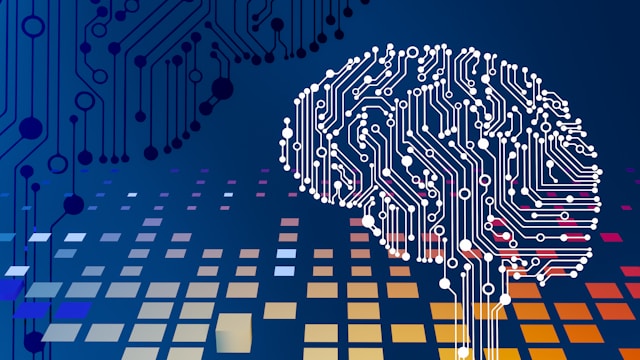For decades, the digital realm of interactive entertainment—whether it’s structured competitive games or the thrilling, quantified risks of wagering—has been predicated on a fundamental tension: the balance between skill and chance. The golden rule, often echoed in analyses of high-stakes poker or strategic RPGs, was that while fortunate moments could swing outcomes, sustained expertise overwhelmingly dictated long-term success. However, a quiet revolution is underway, a transformation driven not by human ingenuity alone, but by the increasingly sophisticated application of artificial intelligence and algorithmic processing. This shift isn’t about replacing human players; rather, it’s about profoundly altering the dynamics of the entire ecosystem, creating experiences that are theoretically more dynamic, more personalized, and, frankly, a little more unsettling.
The Rise of Predictive Analytics in Gaming
The initial incursions of AI weren’t particularly glamorous. Early implementations focused primarily on minor optimizations: adjusting difficulty levels based on a player’s performance, providing tailored tutorials, or even streamlining the flow of in-game events. But the underlying technology, rooted in machine learning, was quietly gathering data. Now, we’re witnessing a shift toward predictive analytics – systems that don’t merely respond to player actions, but actively anticipate them. Consider the design of sprawling, open-world games; these titles, once lauded for their emergent storylines, are increasingly guided by algorithms that gauge player behavior and nudge them toward certain narrative paths, maximizing engagement and, subsequently, monetization. Data collected on everything from preferred weapon types to favored locations is meticulously analyzed, painting a remarkably detailed portrait of the individual gamer. It’s a subtle form of directing storytelling, driven not by a human author, but by a complex web of calculations.
Beyond Simple Difficulty Adjustment
The evolution extends far beyond simply scaling enemy health or adjusting puzzle complexity. Sophisticated systems are now crafting entirely novel encounters designed to challenge a player at precisely the point where they’re exhibiting signs of boredom or frustration. This is akin to a highly attentive, relentlessly adaptive instructor, but one whose understanding of a player’s individual cognitive thresholds is derived from statistical patterns, not empathetic observation. We’ve seen similar approaches meticulously used within simulations—training environments, for example—to ensure learners are consistently confronted with challenges that push them just beyond their current capabilities.
The Echo Chamber Effect
It’s important to acknowledge a potentially problematic consequence of this proactive shaping. The constant optimization for engagement can create “echo chambers” – environments where players are presented with only content that aligns with their established tastes and preferences. This isn’t necessarily a malicious design choice, but it can inadvertently limit exploration and discovery, reinforcing existing biases and potentially discouraging players from venturing outside their comfort zones. The very systems intended to enhance the experience can, paradoxically, constrict it. A recent investigation into massively multiplayer online games, reminiscent of some of the insights derived from studies into social media filter bubbles, revealed a significant correlation between prolonged engagement and a narrowing of players’ strategic repertoires.
Algorithmic Fairness and the Betting Landscape
The application of AI isn’t confined to interactive games. The world of online betting, a space often criticized for perceived biases and uneven odds, is undergoing a radical transformation thanks to algorithmic adjustments. Initially, concerns centered around the ability of sophisticated trading systems to exploit tiny market inefficiencies, generating profits at the expense of individual bettors. However, the focus is now shifting towards “algorithmic fairness” – the effort to mitigate biases embedded within the core algorithms that determine odds and payouts. The objective is to ensure that the system isn’t inadvertently favoring certain outcomes or systematically disadvantaging specific players based on factors unrelated to their skill or risk profile.
Beyond Margin Manipulation
While margin manipulation, the practice of artificially inflating odds to capture a small advantage, remains a concern (and a persistent battle for regulators), the broader implications are far more nuanced. Betting algorithms, powered by vast datasets analyzing everything from historical performance to real-time social media sentiment, are capable of detecting minute shifts in public opinion and adjusting odds accordingly. This isn’t necessarily nefarious; a well-designed system can accurately reflect the perceived probability of an event. However, it also raises the potential for ‘herd behavior’ – where collective sentiment unduly influences betting patterns, creating feedback loops that amplify volatility and distort the true probabilities involved. Think about the swift, sometimes irrational, shifts in confidence surrounding a particular team or athlete; algorithms are adept at identifying and reacting to these rapid fluctuations, leading to rapidly changing odds and increased risk for less informed bettors.
The Rise of Dynamic Odds
The most immediate change has been the proliferation of “dynamic odds.” Unlike static odds, which remain constant until the event concludes, dynamic odds fluctuate in real-time, responding to incoming data. An example of this is illustrated in the following table:
| Event | Starting Odds | 10 Minutes Later | 30 Minutes Later |
|---|---|---|---|
| Soccer Match: Team A vs. Team B | 2.50 | 2.35 | 2.10 |
| Horse Race: Midnight Express | 5.00 | 4.80 | 4.20 |
| Poker Tournament – Final Table | 1.20 | 1.10 | 0.95 |
As you can see, the odds aren’t static; they’re a living reflection of the evolving probabilities, influenced by a multitude of factors and mediated by algorithmic assessment. This creates a more dynamic and, arguably, more exciting betting experience, but it also demands a heightened level of awareness and critical thinking from the player.
AI-Powered Chatbots and Customer Support
The customer support aspect within betting platforms has also been heavily influenced by AI. Chatbots, powered by natural language processing, are increasingly handling routine inquiries—providing account information, clarifying rules, and assisting with basic transactions. While these systems aren’t capable of replicating the empathy or nuanced judgment of a human agent, they offer 24/7 availability and consistently accurate responses, improving user satisfaction and reducing the workload on human support teams. These chatbots represent a significant step towards personalized service – adapting their responses based on a user’s past interactions and individual betting preferences. It’s a subtle form of micro-targeting, aimed at providing a more tailored and efficient support experience.
The Future: Adaptive Gameplay and Beyond
Looking ahead, the integration of AI into both gaming and betting platforms promises even more disruptive changes. We’re moving toward adaptive gameplay environments that fundamentally reconfigure themselves in real-time based on player behavior, creating experiences that are profoundly unique to each individual. Imagine a role-playing game where the storyline, the available quests, and even the non-player characters’ actions are dynamically generated to perfectly match a player’s playstyle and emotional state. The potential is both exhilarating and slightly unsettling. Furthermore, AI is being explored for generating entire game worlds – procedurally generated landscapes, intricate storylines, and detailed character designs – significantly reducing the time and cost associated with traditional game development.
Ethical Considerations and the Human Element
However, the increasing reliance on algorithmic control raises critical ethical questions. How do we ensure transparency in these systems? How do we mitigate the risk of manipulation and exploitation? And perhaps most fundamentally, how do we preserve the human element of play—the joy of discovery, the satisfaction of overcoming challenges through skill and strategy, the unpredictable nature of chance—in an environment increasingly dominated by artificial intelligence? The goal shouldn’t be to eliminate the human element entirely, but to augment it, rather than supplant it. The most compelling games and betting experiences will likely be those that successfully combine the analytical precision of AI with the creativity and emotional intelligence of human designers and players, creating a synergy that transcends the capabilities of either alone. It’s a delicate balance, one that requires constant vigilance and a commitment to ethical AI development – a principle echoed in the recommendations offered by several prominent organizations studying the impact of automation on various industries.
Q&A: Navigating the Algorithmic Landscape
Reader: What’s the biggest risk associated with these AI-driven systems?
Response: The most significant risk, arguably, is the potential for a erosion of player agency and a subtle but persistent manipulation of behavior. While personalization can be beneficial, the constant optimization for engagement can lead to echo chambers and create a reliance on algorithmic guidance, diminishing a player’s ability to make independent decisions. It’s a slow burn, but one that could fundamentally alter the way people interact with digital entertainment.
Reader: How can players protect themselves from being unduly influenced by these algorithms?
Response: Awareness is the first step. Be mindful of the information you’re receiving and question the recommendations you’re presented with. Actively seek out diverse perspectives and experiences, explore options outside your established preferences, and don’t be afraid to deviate from the “suggested” path. Furthermore, cultivate a strong understanding of the underlying mechanics of the games and betting platforms you’re using. Understanding *why* an outcome is being presented with certain odds will give you a stronger footing to make your own informed judgements.
Reader: Will AI eventually replace human game designers and bookmakers?
Response: That’s a complex question. While AI can undoubtedly automate many aspects of game and betting development, it’s unlikely to completely replace the creative input of human designers and bookmakers. The capacity for genuine innovation, emotional resonance, and subjective judgment remains a distinctly human trait. Instead, we’ll likely see a collaborative model, where AI handles the routine tasks and allows human experts to focus on the more strategic and creative aspects of their work – much like the shift towards digital art tools that empower artists to explore new avenues of expression, rather than rendering them obsolete.

